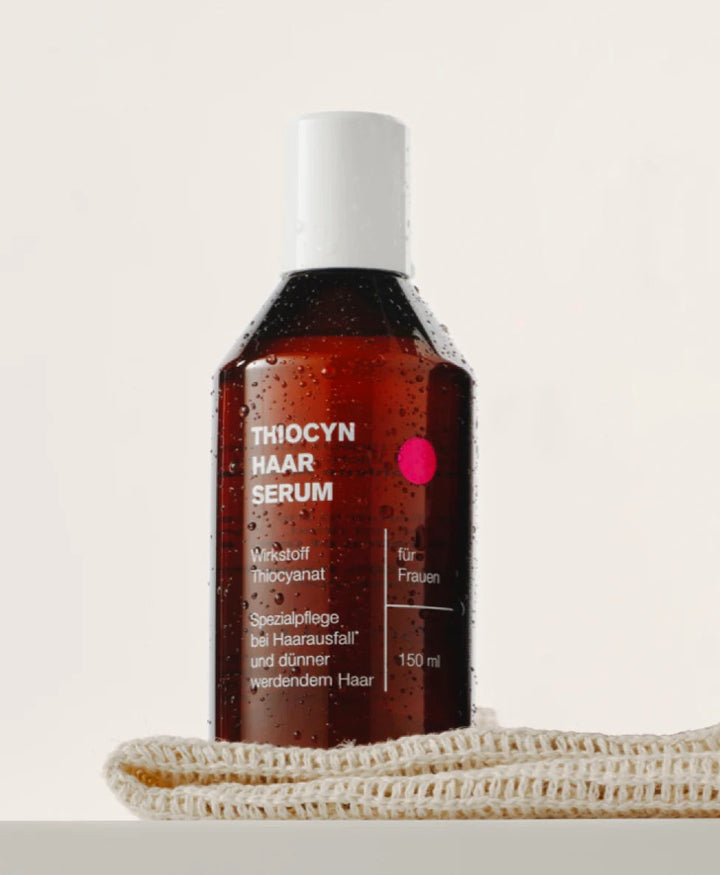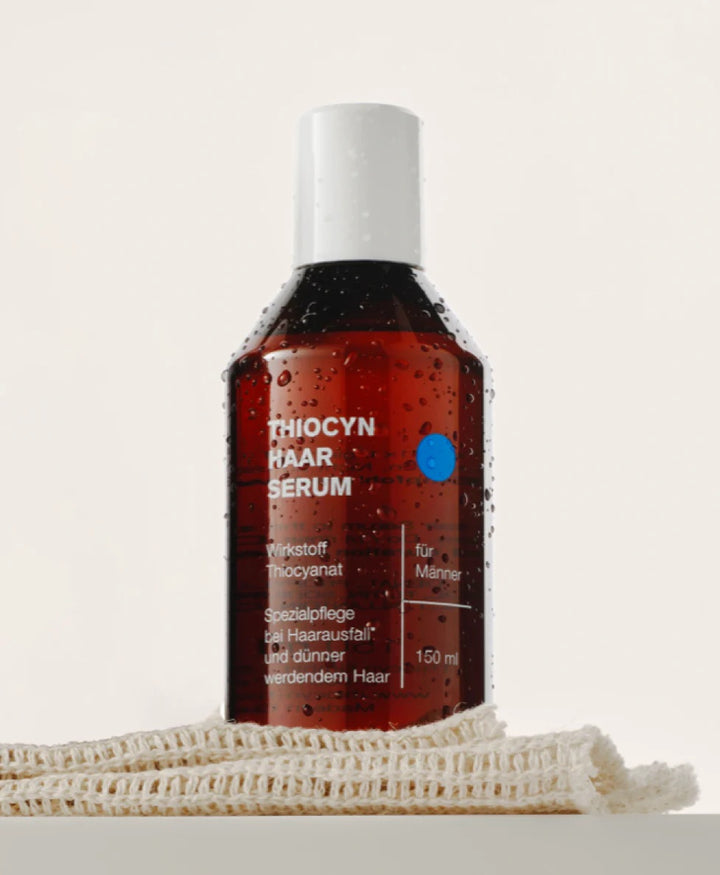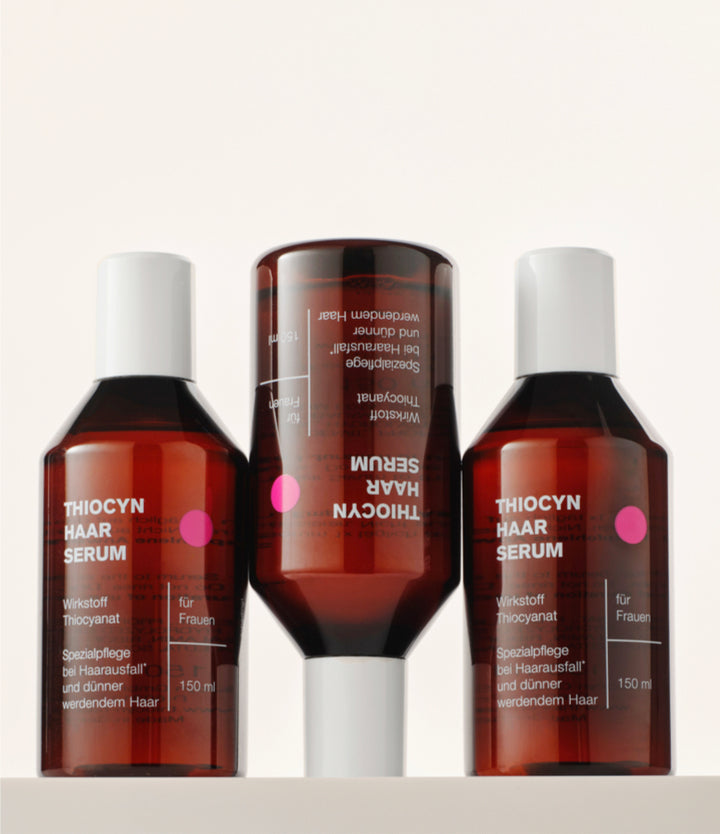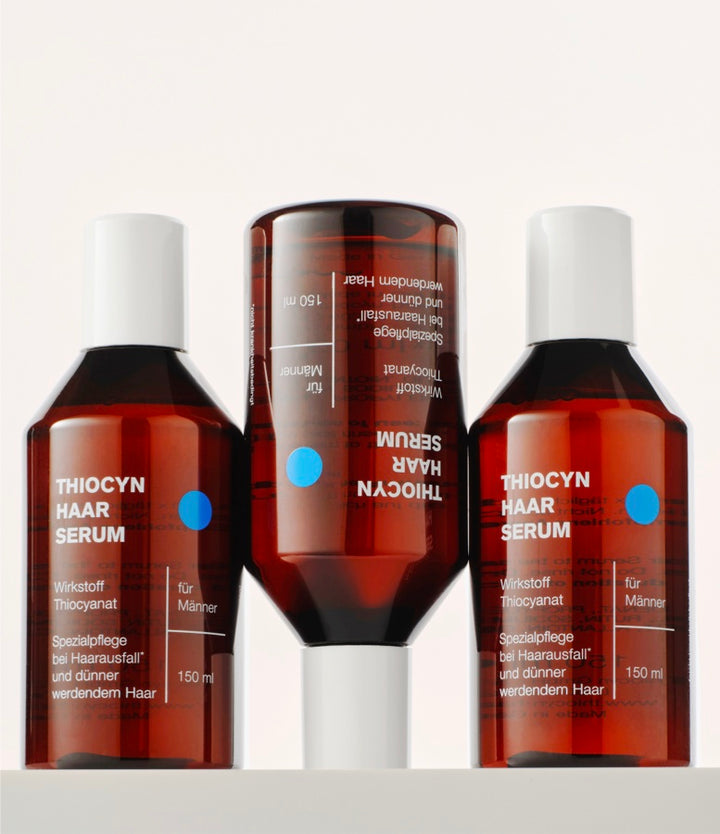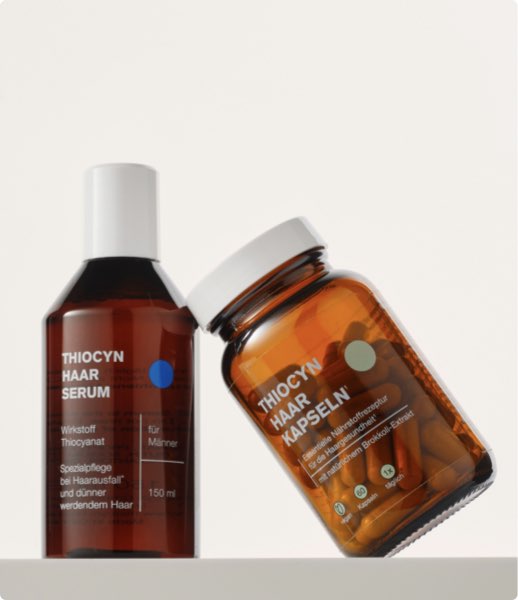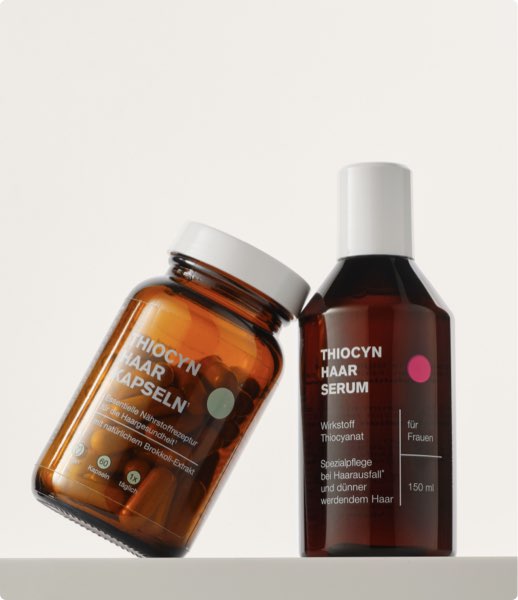| 04. July 2023
Menopausal symptoms

Are you also affected by thinning hair?
- The term menopause refers to the years of hormonal change in women around menopause.
- One indicator of the onset of menopause is menstrual irregularities.
- Symptoms include hot flashes, sleep disorders, irritability, but also hair loss and thinning hair.
- Whether and to what extent women are affected by menopausal symptoms varies from individual to individual.
Menopausal symptoms are not a disease, but rather symptoms of a gradual estrogen deficiency in the female body. Hormone deficiency leads to physiological disturbances as metabolic processes become unbalanced. Typical menopausal symptoms include hot flashes and sleep disturbances, as well as hair loss (hypoestrogen anemic effluvium) and thinning hair.
Menopausal symptoms: from the mid-40s
The first sign of menopause—which can occur as early as the mid-40s—is menstrual irregularities, as the female body produces less progesterone and estrogen. This often results in shorter menstrual cycles, and bleeding may be heavier and last longer.
Menopausal symptoms can appear or worsen at the latest with menopause, the last spontaneous menstrual period in a woman's life. A good half of affected women find their quality of life more or less impaired by the following symptoms:
Mood swings
"Why are you always so irritable?" is a question women often hear during menopause. Hormonal fluctuations are almost always to blame. They demonstrate the effect of estrogen on the female psyche.
Hot flashes
Symptoms such as hot flashes occur when the heat center in the brain, specifically the hypothalamus, stimulates the body to release heat due to a lack of estrogen. Affected women begin to sweat within two to three minutes. The frequency of hot flashes varies from individual to individual: from occasional occurrences to several dozen times per day and night.
Sleep disorders
If inner peace is disturbed by mood swings or nervousness, sleep disturbances inevitably occur. With increasing age, the phases of deep sleep shorten. Furthermore, the depth of sleep decreases. Women who are disturbed by nighttime hot flashes and sweating have difficulty sleeping through the night.
Weight gain
Weight gain during menopause makes sense from a hormonal perspective, because the body's restructuring allows the organism to compensate for the falling estrogen levels, as the subcutaneous fat also produces estrogen to a certain extent.
Heart palpitations
If symptoms such as irregular heartbeat (palpitations), temporarily elevated blood pressure and high cholesterol levels occur and an internal examination does not reveal any evidence of cardiovascular disease, the treating physician will often suggest hormone therapy after consulting a cardiologist.
Joint problems
Estrogens control the genes that are partly responsible for joint function. While cardiovascular disorders are treated with tablets, an estrogen gel is usually sufficient for joint pain.
Dryness of mucous membranes
Estrogens also control numerous genes that are partly responsible for collagen synthesis. This explains why connective and muscle tissue loses elasticity when estrogen is deficient. Women's quality of life is also impaired by dry skin, especially dry mucous membranes around the eyes and vaginal area.
osteoporosis
Until menopause, estrogen slows bone loss. Without estrogen, bone density decreases as part of the natural bone remodeling process because more bone mass is lost than built up. Loss of mass and density makes bones prone to fractures.
Thinning hair
Many women initially experience diffuse hair loss at the onset of menopause, which reduces hair volume. A relative increase in androgens, specifically dihydrotestosterone (DHT), can trigger severe hereditary hair loss around the age of 50. Obvious symptoms include thinning hair at the crown, and often a receding hairline.
Hormones for menopausal symptoms?
A good third of menopausal women are prescribed hormones to alleviate symptoms such as hot flashes, mood swings, or osteoporosis. "Just any" birth control pill won't suffice, because hormone metabolism is so complex that defined hormone doses must be continually re-evaluated to avoid unwanted side effects.
In the debate about whether hormones should be used to treat menopausal symptoms, one fact is often overlooked: the female body systematically breaks down estrogen receptors after menopause, including in the hair follicles. At some point, the cellular metabolism of the hair follicles adapts to the lack of the growth hormone estrogen, but is still exposed to the disruptions caused by DHT, which lead to thinning hair.
Is it possible to strengthen regrowing hair before and after menopause and protect it against growth-disrupting influences, especially the DHT effect? Yes, there are ways, for example, Thiocyn hair serum with patented Thiocyanate active formula.
READ BY 23,000 PEOPLE
Join 23,000 others and find out how to improve your hair health with great offers and discounts as well as helpful advice
